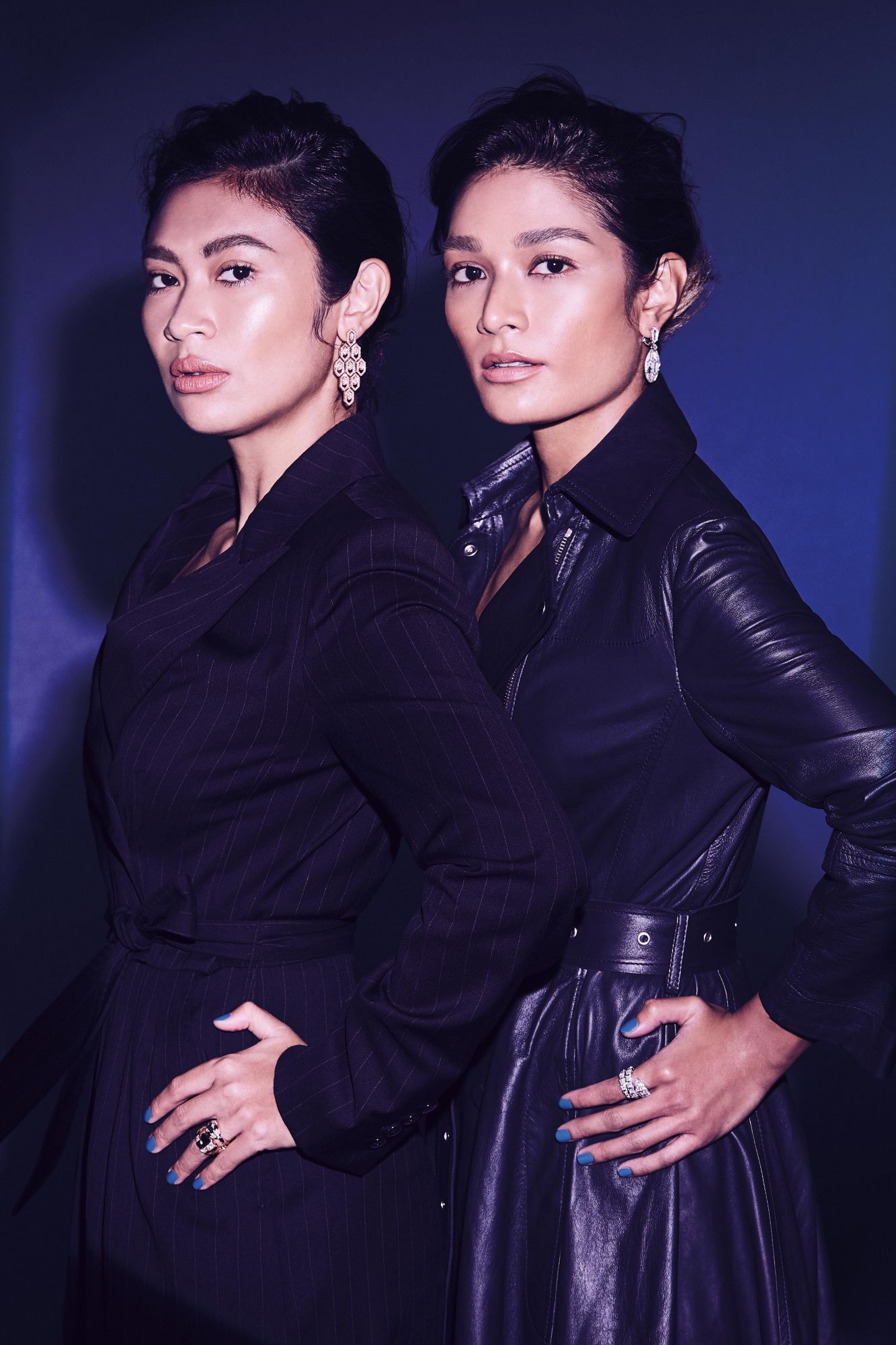It’s knowing each other inside out, and having each other’s backs for over 13 years. Here’s what happens when a Sarawak-born musician and a DJ from Kuala Lumpur meet.
Tunku Nadia Naquiyuddin was the first of the duo to arrive; there was a certain grace in the way she held herself. Dressed simply in a classic white-shirt-and-jeans combo, the petite 38-year-old was soft-spoken at first, but as her phone buzzed, her small smile grew at the message on her screen. “Ara’s here,” she tells me. I could hear the excitement in her voice and couldn’t help but echo her bright expression.
And despite the noise of the office lunch crowd that surrounded us, a low, smoky voice from the entryway caught my ear. Arafah Edruce, 35, whose stage name was ‘Arabyrd’ and a musician in her own right, peered over towards our table and though she was masked, her eyes were curved into crescent moons. Dressed in a camo-patterned jumpsuit and a pair of stylish squared sunglasses, Arafah apparently had another interview with TV3. Voicing my concern about the rush, she assures me, “It’s okay", and then turns to Nadia with a huge smile on her face.
See also: Cover Story: Dato' Sri Siti Nurhaliza On Her Beauty Empire, SimplySiti

“Hi babe!” she squeals.
I quieted as they had their moment. It was obvious that they missed each other, and with the semi-lockdown still in place, I understood the feeling of being separated from loved ones for far too long—especially when they’ve known each other since 2007. Nadia says, “This was two years before we started being DJs, and it was honestly just two years of pure, unadulterated fun. On the plus side, both of us shared a love for music.”
Arafah, who was nodding in agreement with her friend’s words, added that their first few ‘gigs’ were akin to “children performing for their families and friends at home. It was an adventure experimenting and trying out new sounds. We held parties at Nadia’s place, and she had this old-school CDJ (a digital music player that DJs use). We’re talking about the good ol’ days where you had to slip a disc in and mix it separately. And that was when the Twinkies came to be!”
Having been officially established in 2009, the duo set out to make their own mark in the deejay scene, and would bring their own props to amplify the fun for both themselves as well as their fellow party-goers. “Nadia’s dad—Tunku Naquiyuddin—was one of our first fans actually,” Arafah faux-whispers. Nadia laughs at her conspiratory tone, but it softens into a fond chuckle as she recalls her father’s support.

